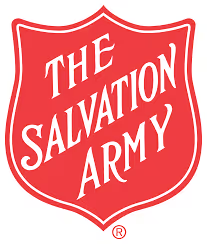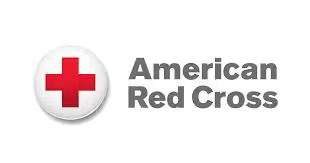






5-Star Valuation Services, Loved by Hundreds
Frequently Asked
Questions
No Frequently Asked Questions Found.
At its core, a tax deduction represents an expense that can be subtracted from total income before calculating the final tax owed. These deductions come in various forms, each with specific qualifying criteria and implications for taxpayers. Key categories include personal expenses like mortgage interest and medical costs, business operational expenses, itemized deductions, and charitable contributions.
Personal deductions cover a wide range of expenses, from housing-related costs to healthcare expenditures. Business owners can offset their taxable income by deducting ordinary and necessary operational expenses such as rent, utilities, and supplies. Taxpayers also have the option to choose between taking a standard deduction or itemizing their expenses, depending on which approach provides the most financial benefit.
Charitable contributions offer another valuable avenue for tax deductions. Donations to qualified organizations not only support meaningful causes but also provide potential tax advantages. However, it's important to understand that deductions reduce taxable income, not the tax bill directly. For instance, a deduction in the 22% tax bracket would lower tax obligations by 22 cents for every dollar deducted.
Navigating tax deductions requires careful attention to evolving tax laws, eligibility requirements, and specific limitations. Tax regulations frequently change, making it essential for taxpayers to stay informed about current guidelines and potential opportunities for tax optimization.
Understanding and strategically applying tax deductions can significantly impact an individual's or business's financial health. While the process can be complex, these deductions represent a legitimate and valuable tool for managing tax responsibilities and potentially reducing overall tax burden.
The process involves a comprehensive evaluation of an asset's worth through systematic and recognized valuation methods. Qualified appraisers employ rigorous techniques such as the cost approach, sales comparison approach, and income approach to establish an accurate and defensible market value. These methodologies consider multiple factors including asset condition, market trends, comparable sales, and potential income generation.
Taxpayers most commonly seek these appraisals for scenarios like charitable donations of property, real estate transactions, business asset reporting, and investment-related deductions. The primary objective is to create a credible, detailed report that transparently demonstrates the asset's value, supporting the taxpayer's claimed deduction.
Meticulous documentation is paramount in these appraisals. A comprehensive report must include detailed asset descriptions, precise valuation methodologies, supporting market data, and the appraiser's professional credentials. This thoroughness helps prevent potential challenges from tax authorities and ensures the appraisal meets stringent regulatory requirements.
Obtaining an appraisal from a certified professional who understands complex tax regulations is crucial. These experts provide an objective, unbiased assessment that can withstand potential IRS scrutiny, helping taxpayers navigate the intricate landscape of tax deductions with confidence and accuracy.
Expert appraisers meticulously investigate multiple dimensions of a garment, including its provenance, craftsmanship, condition, and market positioning. Each piece undergoes rigorous scrutiny, where details such as fabric quality, brand reputation, historical significance, and current fashion trends are carefully weighed.
The valuation process requires deep expertise in textile history, fashion industry dynamics, and market economics. Professionals utilize specialized knowledge to differentiate between standard items and truly exceptional pieces that may hold significant financial or collector's value.
Critical elements driving an appraisal include the item's brand prestige, physical condition, authenticity, rarity, and current market demand. A vintage designer dress from a renowned fashion house, for instance, might command substantially different valuation compared to a mass-produced contemporary garment.
This nuanced assessment provides critical insights for diverse purposes—from insurance documentation and estate planning to potential resale strategies. By offering an objective, professional perspective, clothing appraisals help individuals understand the genuine value of their textile assets with precision and credibility.
The ultimate goal of a clothing appraisal is to deliver a comprehensive, evidence-based valuation that reflects the item's true worth within the current marketplace, ensuring owners have accurate, reliable information about their clothing's financial standing.
The process typically involves submitting high-resolution photographs and comprehensive item descriptions through digital platforms. Clients can capture detailed images that showcase the clothing's condition, unique features, brand markings, and any distinguishing characteristics that might impact its value. Professional appraisers carefully analyze these submissions, leveraging their expertise to provide accurate and nuanced assessments.
Advanced digital appraisal techniques now include live video consultations, enabling real-time interaction between the appraiser and client. These interactive sessions allow for immediate clarification, close-up examination, and comprehensive discussion of the item's specific attributes. Video platforms like Zoom or Skype facilitate a thorough evaluation that closely mimics an in-person appraisal.
Online appraisals are particularly beneficial for individuals with limited mobility, busy schedules, or those located in areas with restricted access to specialized appraisal services. The digital approach expands clients' ability to connect with experts who possess deep knowledge of clothing valuation, including vintage, designer, and niche textile markets.
Professional appraisers evaluate multiple factors during these virtual assessments, including fabric quality, brand reputation, historical significance, condition, and current market trends. This comprehensive approach ensures a detailed and accurate valuation that goes beyond surface-level examination.
Whether for insurance documentation, estate planning, resale preparation, or personal knowledge, online clothing appraisals provide a flexible and professional solution for understanding the true value of textile collections.
Fashion appraisers excel in high-end designer clothing, leveraging deep understanding of luxury brands, historical design contexts, and contemporary market trends. Their expertise enables accurate assessment of premium garments from renowned fashion houses and limited-edition collections.
Vintage clothing experts focus on garments aged 20-30 years, meticulously evaluating historical pieces through detailed condition analysis, rarity assessment, and market demand understanding. Their skills distinguish authentic vintage items from modern reproductions, providing critical valuation insights.
Costume appraisers specialize in performance-related clothing, examining theatrical, film, and television wardrobe pieces. Their evaluations extend beyond monetary value, encompassing cultural significance, production history, and potential connections to notable performers or designers.
Sports apparel specialists concentrate on athletic clothing and memorabilia, understanding intricate market dynamics surrounding professional sports merchandise. Their assessments consider player associations, historical moments, and authentication processes for high-value collectible items.
Textile appraisers adopt a broader perspective, evaluating fabric composition, material quality, and historical relevance across clothing categories. Their comprehensive approach allows nuanced assessments of garments based on textile characteristics and manufacturing techniques.
General clothing appraisers offer versatile valuation services across diverse clothing segments, applying comprehensive market knowledge to assess items based on brand reputation, condition, quality, and current trends.
This professional diversity ensures individuals and organizations can access specialized expertise matching their specific clothing valuation requirements.
From an insurance perspective, an accurate appraisal ensures proper coverage for valuable clothing items. Without a precise valuation, individuals risk significant financial loss if items are damaged, stolen, or lost. Insurance providers often require detailed documentation to determine appropriate compensation, making professional appraisals an essential protective measure.
Tax considerations represent another key reason for obtaining a clothing appraisal. When donating garments with substantial value, a formal appraisal becomes crucial for claiming legitimate tax deductions. The IRS mandates professional documentation for donations exceeding specific thresholds, transforming an appraisal into a potential financial advantage.
Estate planning represents a nuanced area where clothing appraisals prove particularly valuable. During the complex process of settling an estate, precise valuations help ensure equitable distribution among heirs and provide clear documentation of personal property values. This can prevent potential disputes and streamline the inheritance process.
For collectors and fashion enthusiasts with high-end or vintage pieces, appraisals offer insight into current market values. Whether considering resale, documenting a collection's worth, or understanding potential investment potential, a professional assessment provides authoritative and current information about a garment's financial standing.
Ultimately, clothing appraisals transcend simple price tags. They represent a sophisticated approach to understanding, protecting, and strategically managing valuable textile assets across personal, financial, and legal landscapes.
Understanding Clothing Appraisals 101
Clothing appraisals are a critical component for those looking to claim tax deductions on their clothing donations. These appraisals establish the fair market value of your clothes, which is essential for accurate reporting when filing taxes. By thoroughly assessing the condition, brand, and market demand of each item, an appraiser can provide you with a comprehensive evaluation that assists in determining the deductible amount.
The process of clothing appraisal involves a detailed analysis of various factors including fabric quality, designer labels, and current market pricing trends. Professional appraisers utilize their expertise to ensure that the clothing's wear and tear, as well as its rarity or desirability, are accounted for accurately. This thorough evaluation not only helps you maximize your deductions but also provides clear documentation in case of an audit.
It's important to note that the IRS requires that donated clothing be in good condition or better to qualify for deductions, making professional appraisals invaluable. Having a credible appraisal can enhance the legitimacy of your claimed deductions and protect you from potential tax liabilities. Therefore, understanding the nuances of clothing appraisals can empower donors to make informed decisions and optimize their tax benefits effectively.
Why Clothing Appraisals Matter for Tax Deductions
Clothing appraisals play a vital role in determining the fair market value of your wardrobe, especially when it comes to claiming tax deductions. When you donate or dispose of clothing items, the IRS requires proper documentation to validate the value of those contributions. Without a professional appraisal, individuals may struggle to justify the monetary value assigned to their used clothing, potentially leading to audits or disallowed deductions. A reliable appraisal not only provides an accurate valuation but also ensures compliance with tax regulations, allowing taxpayers to maximize their deductions without fear of penalties.
Moreover, clothing appraisals can significantly impact your financial planning and asset management strategies. Many people overlook the true worth of their clothing, considering it merely as personal items rather than valuable assets that contribute to their overall net worth. By obtaining a clothing appraisal, you gain a clearer perspective of your wardrobe's value, which can be essential in estate planning or when preparing financial statements. This awareness not only supports informed decision-making but can also highlight potential areas for investment in future clothing purchases.
Types of Clothing Eligible for Appraisal
When considering clothing for appraisal, it's important to recognize that not all garments meet the criteria for tax deductions. Generally, items valued at $500 or more may require a qualified appraisal to substantiate their worth. This could include high-end designer pieces, vintage attire, or costumes with historical significance. Garments that are mass-produced or lack a distinctive brand may not hold significant value, thereby making them less likely to qualify for a formal appraisal.
In addition to brand reputation, the condition and rarity of the clothing also play a crucial role in determining appraisal eligibility. Unique, limited-edition items, such as those from prestigious fashion houses or garments worn by celebrities, can enhance their appraised value significantly. Furthermore, clothing in excellent condition, with original tags or packaging, tends to fetch higher appraisals. Ultimately, identifying which pieces warrant appraisals ensures that you accurately document their value for tax deduction purposes.
The IRS Guidelines on Clothing Donations
The IRS provides specific guidelines regarding the tax deduction for clothing donations, which are considered 501(c)(3) charitable contributions. According to the IRS, the value of donated clothing is deductible based on its fair market value at the time of the donation. Fair market value is defined as the price that the item would sell for on the open market, or what a willing buyer would pay to a willing seller. Therefore, appraisals can be essential in ensuring that you accurately assess the value of your donated clothing for tax purposes.
In addition to determining fair market value, it is crucial to keep meticulous records of each clothing item you intend to donate. This includes taking photographs, noting the condition of each piece, and acquiring receipts from the charitable organization receiving the donation. The IRS expects that taxpayers will substantiate their deductions, and the documentation serves as vital evidence in the event of an audit. Failing to provide adequate documentation may lead to disallowed deductions and potential tax liabilities.
Furthermore, the IRS stipulates that for any single item worth over $500, a qualified appraisal may be required to claim a tax deduction. This is particularly important for valuable pieces such as designer clothing or high-end accessories. A qualified appraiser can help determine an item’s fair market value, ensuring compliance with IRS guidelines while maximizing the potential tax benefits of your charitable donations. Engaging with an appraiser familiar with clothing valuation can also help establish a better understanding of the nuances involved in assessing apparel for tax deduction purposes.
How to Determine Fair Market Value of Clothing
Determining the fair market value of clothing for tax deductions involves assessing what a willing buyer would pay for the items in their current condition. This generally includes considering factors such as brand, style, condition, and age. For instance, high-end designer pieces or limited edition items are often valued higher than basic, mass-produced garments. To make a more accurate evaluation, appraisers may refer to online marketplaces or auction sites to gauge comparable sales or browsing local consignment shops to see current pricing trends.
Additionally, when assessing clothing for appraisal, it is essential to document any significant wear or repairs, as these factors can heavily influence value. Evaluation methods can include obtaining professional appraisals, which can provide an expert assessment, or utilizing resources such as thrift store pricing guides or donation value scales published by nonprofit organizations. Keeping a detailed inventory, including photographs and purchase receipts, can also strengthen your position during tax filing, ensuring you have the necessary evidence to support your claimed deductions.
The Role of a Qualified Appraiser
A qualified appraiser plays a crucial role in the clothing appraisal process, particularly when it comes to determining the fair market value of items for tax deduction purposes. These professionals possess specialized knowledge regarding the fashion industry, current market trends, and the unique characteristics that can affect the value of clothing. Their expertise helps ensure that appraisals are not only accurate but also compliant with IRS guidelines, which can be vital when claiming deductions on tax returns.
When hiring a qualified appraiser, individuals can expect a thorough evaluation of their clothing items. This includes considering factors such as brand, age, condition, and rarity, all of which contribute to an item's overall worth. The appraiser will document the findings in a detailed appraisal report that can be used to substantiate the value of the items during tax season, providing the necessary documentation to support claims for deductions and minimizing potential audits by the IRS.
Moreover, using a qualified appraiser can enhance the credibility of the appraisal process. Financial institutions and tax authorities often require appraisals to meet certain standards, and an appraisal performed by a certified professional is more likely to be accepted without dispute. This level of assurance not only empowers taxpayers to take full advantage of potential deductions but also fosters confidence in their record-keeping and financial planning efforts.
The Appraisal Process Explained
The appraisal process for clothing intended for tax deductions typically begins with a thorough examination of the items in question. Certified appraisers assess the clothing's condition, brand, age, and market demand to establish a fair market value. This ensures that the appraisal aligns with IRS guidelines, which require taxpayers to support their deductions with qualified appraisals for donations exceeding a certain value. Understanding these nuances is crucial for individuals seeking to maximize their deductions while complying with tax regulations.
Once the initial assessment is complete, appraisers compile a detailed report that outlines their findings and the rationale behind the assigned value. This appraisal report often includes photographs and a description of each item, thereby providing credible documentation for tax purposes. The documented value must reflect how much someone would reasonably be willing to pay for the clothing in its current market condition. In turn, this professional assessment adds transparency and legitimacy to the deduction process, as it’s critical to have accurate valuations that can withstand IRS scrutiny.
It is important to note that the appraisal should be conducted by a qualified appraiser with experience in clothing and fashion items. Their expertise not only helps in providing accurate valuations but also aids in evaluating various types of clothing, from casual wear to high-end designer pieces. Ultimately, ensuring the accuracy and credibility of clothing appraisals can significantly impact the tax benefits one might receive, making it a vital step for anyone looking to claim deductions effectively.
Collecting Necessary Documentation for Appraisal
Before initiating a clothing appraisal for tax deduction purposes, gathering the necessary documentation is crucial. This includes receipts, photographs, and any relevant inventory lists that detail the items being appraised. Accurate and organized documentation not only supports the appraisal process but also strengthens the legitimacy of your deduction claim during tax filing.
Photographs play an essential role in the appraisal process as they provide visual evidence of the condition and specifics of each item. Ensure that you capture images from multiple angles and highlight any distinguishing features or imperfections. Including a well-maintained inventory list that includes descriptions, brands, sizes, and estimated purchase prices can enhance the appraiser's ability to assign accurate values to your clothing items.
Additionally, it can be beneficial to maintain documentation of your clothing's history, such as previous appraisals or sales records. Having this background information readily available not only aids in the appraisal process but also establishes a comprehensive narrative of the clothing's value over time. With thorough documentation in hand, you will be well-prepared for an efficient and accurate appraisal, maximizing your potential tax deductions.
Common Mistakes to Avoid When Appraising Clothing
One of the most common mistakes made when appraising clothing is overvaluing items based on their original retail price. Many individuals mistakenly assume that what they paid for an item reflects its current market value. However, fashion is a constantly evolving industry, and trends can significantly diminish the worth of clothing over time. It's essential to consider factors such as the item's condition, brand reputation, and current demand when determining its actual value for tax deduction purposes.
Another frequent error is not keeping thorough documentation of the clothing being appraised. Whether appraising a single piece or an entire wardrobe, detailed records, including purchase receipts, photographs, and descriptions, are essential for substantiating claims to the IRS. Additionally, consulting with a qualified appraiser can help avoid misvaluations and ensure that all relevant factors are considered when determining the final appraisal value. By being aware of these common pitfalls, individuals can better prepare themselves for a successful and accurate clothing appraisal.
Tips for Maximizing Your Tax Deductions
To maximize your tax deductions related to clothing appraisals, it’s essential to maintain detailed documentation of the items you wish to deduct. This includes taking photographs, keeping receipts, and carefully noting the condition of each piece of clothing. The IRS requires specific substantiation when you claim charitable contributions or other deductions, so having evidence readily available can help substantiate your claims during tax filing and any potential audits.
Furthermore, understanding the fair market value of your clothing items is crucial for obtaining a proper appraisal. This includes knowing how to evaluate clothing based on its brand, condition, and market demand. A qualified appraiser can provide an accurate estimation, ensuring that your deductions align with IRS guidelines and reflect the true value of your contributions or losses.
Lastly, consider the timing of your deductions. Donating clothes at the end of the tax year can provide an immediate benefit, while also allowing you to leverage any appraisal obtained for those items. Staying informed of tax laws and potential changes can help you seize opportunities that may arise, enabling you to claim the maximum deduction possible while minimizing your tax liability.
What to Expect in an Appraisal Report
An appraisal report is a crucial document that provides a detailed account of the clothing items being evaluated, supporting their value for tax deduction purposes. The report typically begins with a clear description of each item, including its brand, style, age, condition, and any unique features that may affect its market value. Appraisers use established valuation methods and market data to determine the fair market value, ensuring that the report adheres to IRS guidelines, which require documentation that reflects the clothing's worth at the time of the donation or sale.
In addition to detailed descriptions, the appraisal report will include photographs of the clothing items. These images serve as evidence of the condition and authenticity of the pieces, enhancing the report's credibility. Furthermore, the report will typically outline the methodology used by the appraiser in determining value, detailing any comparable sales, current market trends, and specific rationale behind the valuation that can aid in substantiating the deductions claimed on tax returns.
Most appraisal reports conclude with a signature and credentials of the appraiser, showcasing their qualifications, experience, and certification in the fashion and apparel industry. This adds an authoritative touch to the report, ensuring that it meets the required standards for IRS submission. Overall, a well-structured appraisal report not only assists in obtaining tax deductions but also serves as a valuable record of your clothing assets.
Frequently Asked Questions About Clothing Appraisals
Clothing appraisals are an essential tool for individuals looking to accurately assess the value of their garments for tax deduction purposes. The Internal Revenue Service (IRS) allows taxpayers to deduct the fair market value of donated clothing, and an official appraisal can provide the necessary documentation to support these claims. An appraiser will take into consideration various factors including the brand, condition, and desirability of the items to establish a credible value that aligns with market trends.
One common question revolves around the types of clothing eligible for appraisal. While high-end designer items typically draw more attention and hold greater value, everyday wear can also be appraised, particularly if the items are in excellent condition or are vintage pieces. Properly documenting the appraisal through professional channels not only boosts credibility but can also ensure that donors maximize their potential tax benefits, providing significant financial advantages when filing annual returns.
View all Locations
APPRAISEITNOW APPRAISERS ARE BEST-IN-CLASS & CREDENTIALED BY LEADING APPRAISAL ORGANIZATIONS LIKE THE ISA, ASA, & MORE.






.svg)










